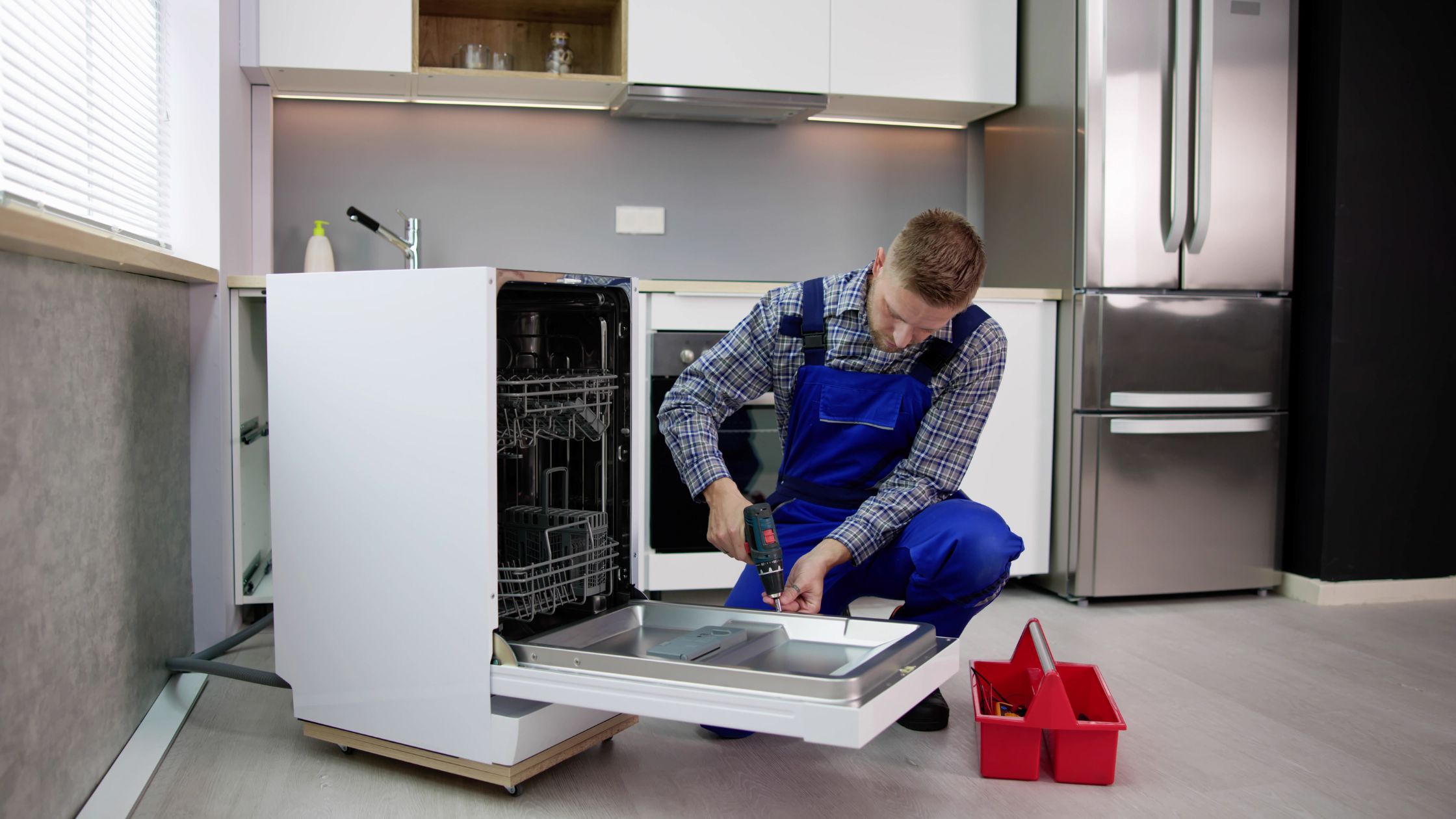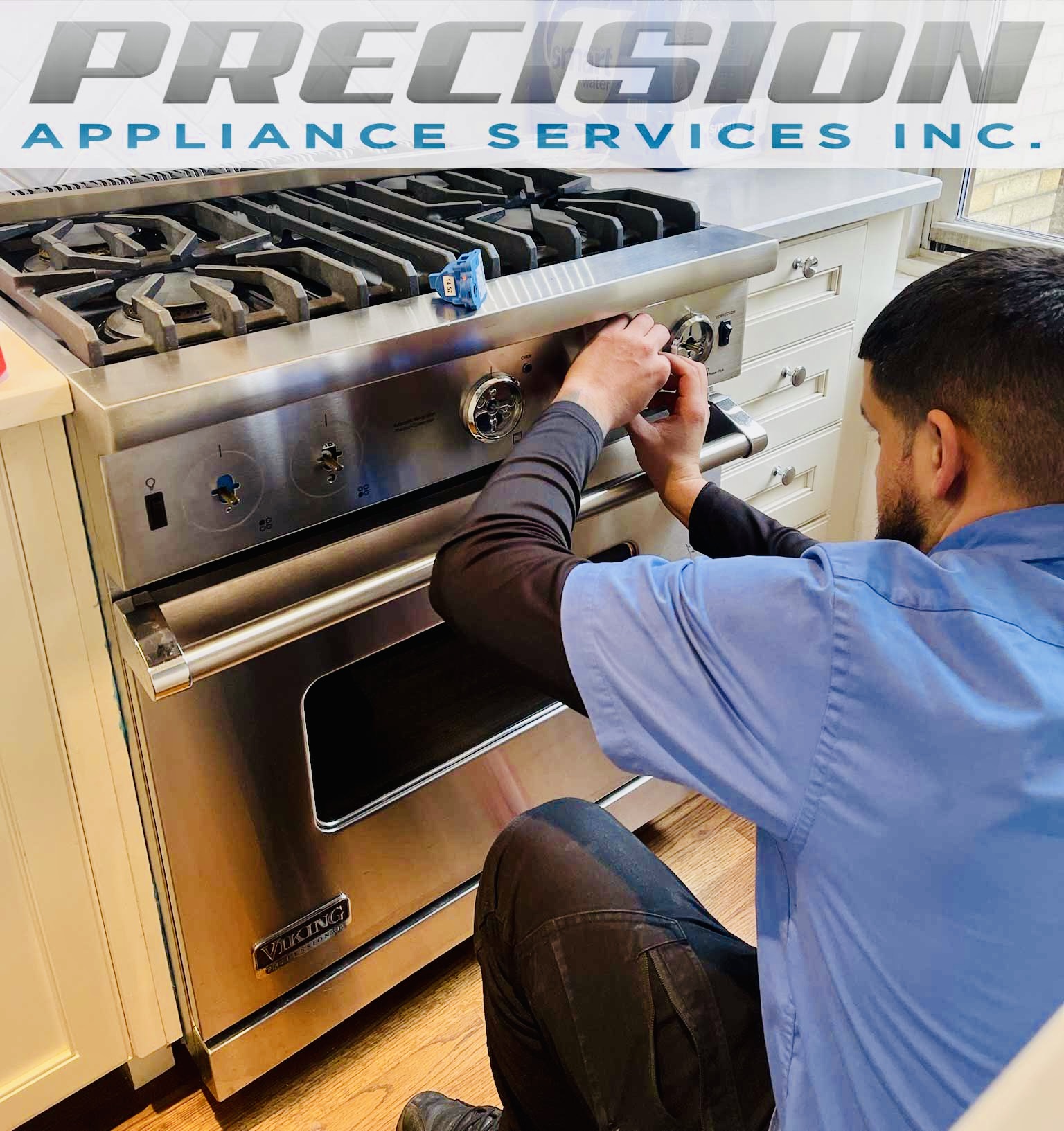Pros, Cons & Best Practices – Dependable Refrigeration & Appliance Repair Service Washing Machine Repair
Pros, Cons & Best Practices – Dependable Refrigeration & Appliance Repair Service Washing Machine Repair
Blog Article
The Ultimate Guide to Recognizing Appliance Repair Work at Home
When your fridge quits cooling down or your stove refuses to warmth, it can really feel overwhelming. Understanding home appliance repair service in your home can save you money and time. You'll discover to acknowledge signs and symptoms, make use of crucial devices, and follow a systematic troubleshooting process. Yet prior to you begin, there are crucial safety precautions you need to take into consideration. What are the most typical issues, and just how can you repair them? Allow's discover the basics.
Usual Home Appliance Troubles and Their Signs
When your appliances start acting up, it's necessary to acknowledge the indicators early on. Ignoring them can lead to bigger concerns and pricey fixings. As an example, if your refrigerator isn't cooling down appropriately, you could see warm spots or condensation forming. This could suggest a falling short compressor or an obstructed vent.Your dish washer may show problems via dirty dishes or unusual noises throughout cycles. If you listen to grinding or clanking, it's time to investigate.A washing device that will not rotate or drain can leave you with soaked washing, recommending a blocked drainpipe or a malfunctioning pump.Lastly, if your stove's temperature level appears off or it takes permanently to preheat, you may be dealing with a faulty thermostat. By remaining alert to these signs and symptoms, you can deal with concerns before they escalate right into major repair services.
Vital Tools for Home Appliance Fixing
When you're dealing with device repairs in your home, having the right tools is essential. Standard hand tools like screwdrivers and pliers will certainly aid you take apart and fix numerous appliances, while electrical testing gadgets guarantee you're functioning safely with electrical wiring. Let's go over what you require to get started on your fixing trip.
Basic Hand Tools
Having the right tools is essential for effective home appliance repair work in the house. Start with a reputable screwdriver set, consisting of both flathead and Phillips types, as screws are common in home appliance setting up. Pliers are also vital; they assist with gripping, twisting, and cutting cords or small parts. A set of needle-nose pliers can get to difficult situations easily. You'll require an excellent flexible wrench for tightening up or loosening up nuts and screws. An energy blade is handy for puncturing packaging or insulation. Lastly, don't forget a strong workbench or surface area to safely organize your devices and parts. With these fundamental hand devices, you'll be well-prepared to tackle most appliance repair work that come your way.
Electrical Testing Gadgets
Along with standard hand devices, electric screening gadgets play a vital role in home appliance repair work. These tools assist you diagnose electric concerns and warranty appliances work safely. A multimeter is vital; it measures voltage, existing, and resistance, permitting you to determine troubles promptly. A non-contact voltage tester is an additional must-have, allowing you detect online wires without making direct get in touch with, boosting your safety and security. Clamp meters are wonderful for gauging present circulation in cables without detaching them, saving you effort and time. In addition, circuit testers can swiftly check if electrical outlets are functioning appropriately. By utilizing these tools, you'll simplify your troubleshooting process and improve your fixing skills, making home appliance upkeep a great deal easier.
Step-by-Step Guide to Diagnosing Home Appliance Issues
When your home appliance breaks down, it can be irritating, yet identifying the issue does not have to be overwhelming. You'll find out to determine usual issues and apply reliable repairing strategies. Allow's go through the steps to obtain your device back in functioning order.
Typical Home Appliance Problems

Troubleshooting Techniques Clarified

Repairing Significant Kitchen Devices: A Closer Look
Have you ever before asked yourself just how to take on typical problems with your cooking area home appliances? Repairing major kitchen devices like refrigerators, stoves, and dishwashing machines can be easier than you think. Beginning by identifying the problem-- whether it's a fridge not cooling down or a stove that will not heat up. Commonly, a basic reset or inspecting the source of power can look here fix the issue.For fridges, clean the condenser coils and examine the door seals. If your oven's not home heating, inspect the burner and thermostat. Dish washers may simply need a tidy filter or a reset to obtain them back at work. Constantly unplug the home appliance before diving right into repair work to ensure your safety.Don' t neglect to get in touch with the individual guidebook for particular troubleshooting tips connected to your design. With a little persistence and the right devices, you can confidently tackle appliance repair services and save cash while doing so!

Troubleshooting Laundry Devices: Tips and Techniques
When your laundry devices start acting up, it can feel frustrating, yet repairing them doesn't need to be a trouble. Start by inspecting the power supply. Confirm the device is plugged in and the outlet is working. Next, evaluate the door or lid switch; a faulty button can stop the machine from operating.For washers, if it's not rotating, look for unbalanced lots. Redistributing the clothing could address the issue. If your dryer isn't heating, clean the dust filter and examine the air vent for blockages.Listen for uncommon sounds; they can show webpage a problem. If your home appliance is leaking, inspect the pipes for splits or loose links. Paper any error codes shown on electronic displays, as they can lead you in recognizing the concern. Finally, seek advice from the customer guidebook for details repairing tips connected to your model.
Safety Precautions to Take Throughout Services
Prior to you begin any kind of device repairs, it's vital to focus on security to stop crashes or injuries. Unplug the home appliance or turn off the circuit breaker to ensure no power reaches it while you work. Usage shielded devices to lessen the threat of electrical shock. Wear security goggles and handwear covers to secure on your own from sharp edges or debris (Dependable Refrigeration & Appliance Repair Service Dryer repair near me).Make specific your work area is neat and well-lit, so you can see what you're doing. Keep children and pets away from the location to prevent diversions and prospective risks. If you're handling gas appliances, be extra careful; check for leaks prior to proceeding.Take your time, and don't rush via repair services. If you feel uncertain regarding any kind of step, it's much better to pause and research study than to presume. Adhering to these precautions will help create a safer atmosphere for your do it yourself appliance repair service task
When to Call a Professional for Assistance
Just how do you know if it's time to call a professional for home appliance fixings? If you have actually attempted fundamental troubleshooting without success, it's a clear indication. For circumstances, if your appliance still won't begin or reveals unusual noises after resetting it, do not think twice to seek professional help.When you see leaks, smoke, or shedding scents, focus on safety and call a professional quickly. These problems can cause more considerable damages or present dangers to your home.Also, if your home appliance is under guarantee, speaking to a specialist is often the most effective path. They can assure that repair services will not nullify your guarantee, saving you money in the long run.Finally, if you're unclear or awkward with intricate repair services, it's a good idea to leave it to the professionals. Remember, taking on difficult problems without the appropriate knowledge can bring about costly errors. Trust fund a specialist when doubtful!
Frequently Asked Questions
Exactly How Can I Stop Appliance Troubles in the Future?
To avoid appliance problems in the future, you ought to perform routine upkeep, check for wear and tear, tidy filters, and prevent overloading. Remaining proactive will help prolong their lifespan and maintain them running smoothly.
What Are one of the most Common DIY Home Appliance Fixing Mistakes?
You might overlook security precautions, miss fixing actions, or use inaccurate tools when attempting DIY device fixings. Rushing the procedure or neglecting maker standards can result in even more considerable problems and pricey errors. Remain client and educated!
How Do I Know if a Component Demands Substitute?
You can tell if a component requires substitute by examining for unusual noises, leaks, or irregular performance. If the home appliance has a hard time to operate correctly or shows visible damages, it's most likely time for a replacement.
Can I Use Generic Parts for Device Repairs?
Yes, you can utilize common parts for device fixings, but determine they work - Dependable Refrigeration & Appliance Repair Service Washer repair near me. Generic components might conserve you cash, but they could affect efficiency or durability, so weigh your alternatives very carefully before choosing
What Service Warranties Cover Appliance Repairs?
Most device service warranties cover repair services for making issues, however they usually exclude damages from abuse. Inspect your warranty terms very carefully, as some could need using qualified professionals and original components for protection to remain valid.
Report this page